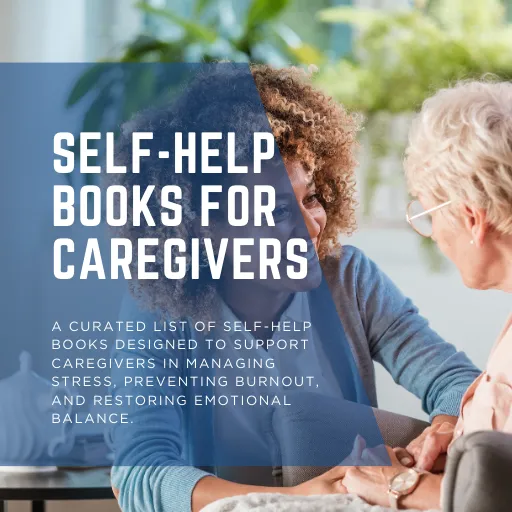
Caregiver Burnout: 5 Books That Can Help You Recharge and Recenter
Essential Reads for Those Balancing Personal Care and Professional Demands
“The simple act of caring is heroic.”
— Edward Albert“To care for those who once cared for us is one of the highest honors.”
— Tia Walker“Rest is not idleness. It is medicine.”
— Unknown
Caregiving is an act of love, but it’s also labor—often invisible, always consuming. Whether you're tending to a parent, a partner, or patients, the emotional toll of constant giving can slowly drain your spirit. Add a career, household responsibilities, and the weight of others’ expectations, and it’s no surprise that burnout becomes a quiet companion.
You may feel guilty for needing space. You may believe self-care is optional. But the truth is, you can’t pour from an empty cup—and reading might just be the gentle, powerful refill you didn’t know you needed.

1. Burnout: The Secret to Unlocking the Stress Cycle by Emily and Amelia Nagoski
This groundbreaking book is a lifeline for anyone overwhelmed by invisible emotional labor. The Nagoski sisters explore how stress builds up in the body—and more importantly, how to release it. With a focus on completing the stress cycle, their advice is scientific, actionable, and affirming for caregivers who feel stuck in survival mode.
Why it helps:
You’ll finally understand why rest doesn’t always feel restorative—and how to fix that.
“Your emotions are tunnels. You have to go all the way through the darkness to get to the light at the end.”
2. Atlas of the Heart by Brené Brown
This beautifully written book is a guided tour through the complex landscape of human emotions. Brené Brown gives language to feelings caregivers often carry—shame, exhaustion, resentment, and empathy overload—helping readers connect, name, and normalize their emotional world.
Why it helps:
It empowers you to feel deeply without feeling broken—and provides emotional vocabulary that can transform your relationships.
“Language shows us the way. It's a flashlight on a dark path.”
3. Radical Acceptance by Tara Brach
Sometimes, the hardest part of caregiving is accepting what you cannot change—aging, illness, decline. Tara Brach, a clinical psychologist and meditation teacher, offers a profoundly compassionate approach to suffering. Through mindfulness and loving awareness, this book teaches how to stop fighting yourself and your circumstances.
Why it helps:
You’ll learn how to find inner peace in the midst of chaos—without checking out emotionally.
“The boundary to what we can accept is the boundary to our freedom.”
4. The Gifts of Imperfection by Brené Brown
If you’re struggling with perfectionism, people-pleasing, or the crushing pressure to “do it all,” this is your permission slip to stop. Brené Brown encourages readers to embrace who they are—not who they think they should be—with wholehearted living practices that feel especially relevant for caregivers.
Why it helps:
It dismantles guilt and replaces it with grounded self-worth.
“Owning our story and loving ourselves through that process is the bravest thing we’ll ever do.”
5. Self-Compassion by Kristin Neff
This book introduces one of the most important tools a caregiver can cultivate: self-kindness. Kristin Neff breaks down the myths of self-care and shows why harsh self-criticism does more harm than good. With research-based exercises, this book is a practical guide to treating yourself with the same empathy you offer others.
Why it helps:
It teaches that compassion is not a finite resource—and it must begin with you.
“With self-compassion, we give ourselves the same kindness and care we’d give to a good friend.”
Conclusion: You Deserve to Be Cared For, Too
Books alone won’t change your circumstances—but they can change your perspective. They give you permission to rest. They help you feel seen. And they offer tools to help you build a life that sustains both your giving and your growing.
If you’re a caregiver feeling depleted, let these books be your companions. Open one. Read slowly. Take in what you need. And remember:
“You are not required to set yourself on fire to keep others warm.”
— Unknown
Your healing matters. Your needs are valid. And your care for yourself is just as sacred as the care you offer to others.